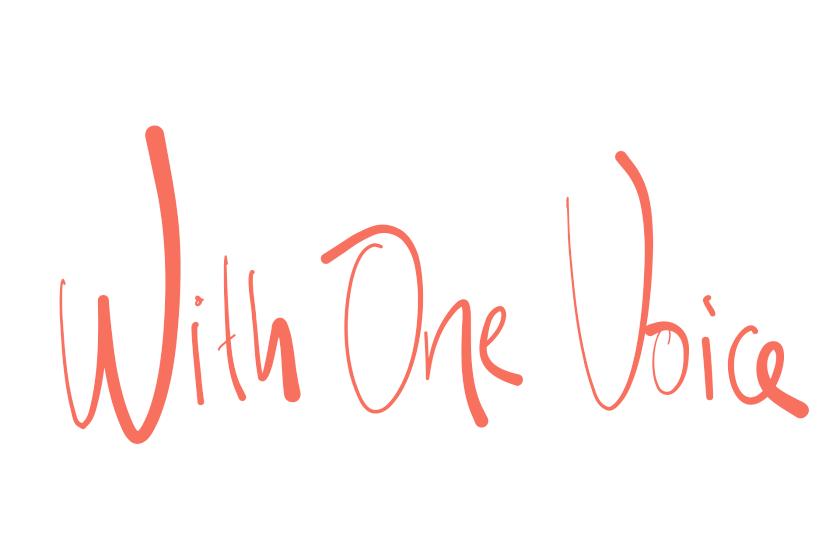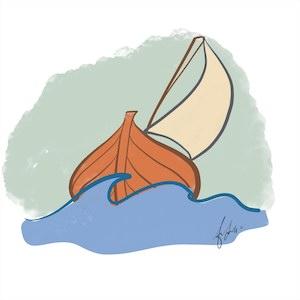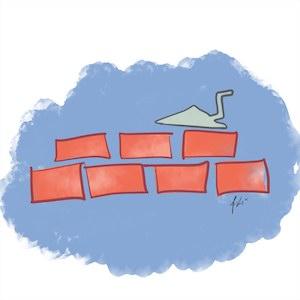
With One Voice - November 2021
Available in French, Spanish, and Portuguese
Welcome to the International Council of Music Creators (CIAM)'s newsletter. In this edition, we explore the creation of a collective management organization in Cabo Verde, the David Israelite and Merc Mercuriadis debate, how the European Union is tackling the safe harbour rule on content responsibility online, and artificial intelligence.
Sign up to receive the With One Voice newsletter here.

My Robot Ate My Lunch
Do you remember the terrifying artificial intelligence entity HAL 9000, the antagonist in Arthur C. Clarke’s masterpiece 2001: A Space Odyssey? Science fiction writers and film directors have lived by reminding us of our inevitable end from then on.
Perhaps because of this we have grown distrustful of robotics and artificial intelligence; however, these scientific advances are here to help us in our constant evolution.
AI is disrupting many industries and will cause the loss of millions of jobs. However, it is also creating new fronts from which humanity will benefit, as in other revolutions.
It is already happening in the trade of writing music where Artificial Intelligence is becoming, more than an enemy, a practical assistant that promises to lighten the creative process.
The idea is not new. Alan Turing, the godfather of computer science, built a machine in 1951 that generated three simple melodies, and 70 years later, we’re still here.
Kanye West fine-tuning songs with Amper Music technology or Ed Sheeran experimenting with Sony’s Flow Machines App is not the end but the sign of the times.
Progress in the AI music field has sped up in the past few years, thanks to research teams at universities, investments from major tech companies, and machine learning conferences like NeurIPS.
However, humans are exceptional at understanding emotions to create melodies, and even if computers are good at recognizing patterns and generating content, they still can’t (at least in the short term) to imitate the art of Paul McCartney, to name someone.
In summary, AI is not here to drink our milkshake but to be a tool that can help to solve problems that took hours to process in the past, unless...Zuckerberg is building Skynet while you read this.

Friends in High Places
In recent days music creators have been spectators at an interesting exchange of words between two prominent members of our wider community, David Israelite, head of the NMPA representing music publishers in the US, and Merc Mercuriadis, the head of Hipgnosis, an organization much in the news recently for acquiring catalogues of copyrights from well-known music creators at a scale and expense not seen in living memory - what David said, what Merck said. We encourage you to follow the links provided, and read for yourselves the discussion, if you haven’t already done so.
Our purpose here is not to opine one way or the other on the thoughts of these two gentlemen. We leave it to you dear reader to come to your own conclusions.
Rather, we wish to direct your your attention to a larger take away: There is a great deal of money, perhaps more than ever before, being spent to acquire ownership of songs. Those like Mr Mercuriadis, who are acquiring songs at enormous expense, very much want to see a good return on their investment.
And we think it’s fair to say, most music creators share this goal. We have invested our lives in the creation of music, and want an equitable return for the significant “investment” we have made, especially in this era of enormous growth and profits for streaming services, among others.
No matter what your thoughts may be about the developing and competing business models that are built on the foundation we music creators have so generously provided, if powerful players are debating who best can increase the value of our collective works, and by doing so are bringing attention to this crucial issue for those of us who create music, then the benefits may well include a real increase in the value of our music, and what we creators receive.
By all means, may the lively discussion continue!

Illegal Ships in Safe Harbours
So imagine there was a harbor, so safe you could literally fill up your ship with illegal stuff without consequences. Why? Because the harbour is owned by a tech giant, though they don’t accept responsibility for its operation. In the beginning the boats were small, but suddenly these giant shipping companies like Google and Facebook were making a business out of it. Or in other words they gilded their boats with the content we have created, without needing to get permission.
The Directive on Copyright in the Digital Single Market, aka Article 17, has spelt the end of the safe harbour rule, originally created to make sure information could be shared – not content. In the past safe harbour had created wild west conditions for tech giants.
In short, the purpose of Article 17 is to make sure all content is available AND licensed by the platform, since they are responsible - they collect the money and data, and they curate it. Thereby any platform sharing content is obliged to get authorization from the rights holders. Or, they are obliged to make a best effort to obtain a license. The interesting process right now is how Article 17 and best effort concept is implemented in the various European legislatures.
Article 17 has been called the most controversial piece of legislation passed in EU parliament in recent years – by some. There was a fear that it might hurt smaller platform companies and sites like Wikipedia, or individual YouTubers. For the same reason there are exceptions to the new rule for Wikipedia and other not-for-profit encyclopedias like GitHub and other open-source software developers.
It is a great victory, though it should have been a natural law in the first place - that we as songwriters and content creators take back the control of our own works. We are once again our own captain at the helm of the ship called music creation.

Build It & We Will Come
The Creation of a Collective Management Organization in Cabo Verde – SCM – Sociedade Cabo-verdiana de Música.
Guest Columnist: Solange Cesarovna, songwriter/artist and SCM President
SCM (The Cabo Verdean Music Society) was formally established on June 24, 2013 and was created to make its fundamental contribution to achieve a greater dream long desired by the Cabo Verdean musical and creative class - the legitimate beginning of the payment of copyright and related rights in Cabo Verde.
Musicians, authors, composers, interpreters, performers, arrangers, publishers, phonographic producers and music researchers joined in a single voice in support of the defense of their rights.
Since its creation SCM has assumed the role of a true school in the area of collective management of copyright in Cabo Verde, investing heavily in education programs for members and awareness of music users, through training activities and workshops.
In the context of consolidating its mission and vision, other giant steps were taken in the course of the SCM, and one of them is undoubtedly its acceptance into CISAC (The International Confederation of Societies of Authors and Composers) in 2017. CISAC currently includes 230 Societies on a global scale.
For five years SCM ensured, on a voluntary basis, that its work was developed through the engagement of its Statutory Governing Bodies. Since 2019, thanks to significant developments and achievements, SCM has recruited its technical team and structured the departments that represent the key activities of a collective management entity, based on best international practices and CISAC’s recommendations.
Today it is with great pride that SCM already sees the fruits of its work and is able to distribute the collected royalties to its members (through the WIPO CONNECT software) as part of an extraordinary partnership with WIPO (The World Organization of Intellectual Property) to provide SCM with a professional copyright management system.
We could not finish without recalling one of the most memorable moments in the history of SCM which was the mission of the Executive Committee of CIAM and PACSA (The Pan-African Composers and Songwriters Alliance) to Cabo Verde in January 2019, in conjunction with the mission of the Executive Committee of CAF (CISAC African Committee), in which extraordinary training sessions were given to more than 300 Cabo Verdean musicians, authors, composers, artists, publishers and music producers, allowing the seeding of knowledge and engagement of the Cabo Verdean musical and creative class in the exercise of the noble mission of collective management and protection of copyright in the African Continent.
TOGETHER FOR COPYRIGHT AND RELATED RIGHTS IN CABO VERDE, BECAUSE MUSIC IS LIFE!
